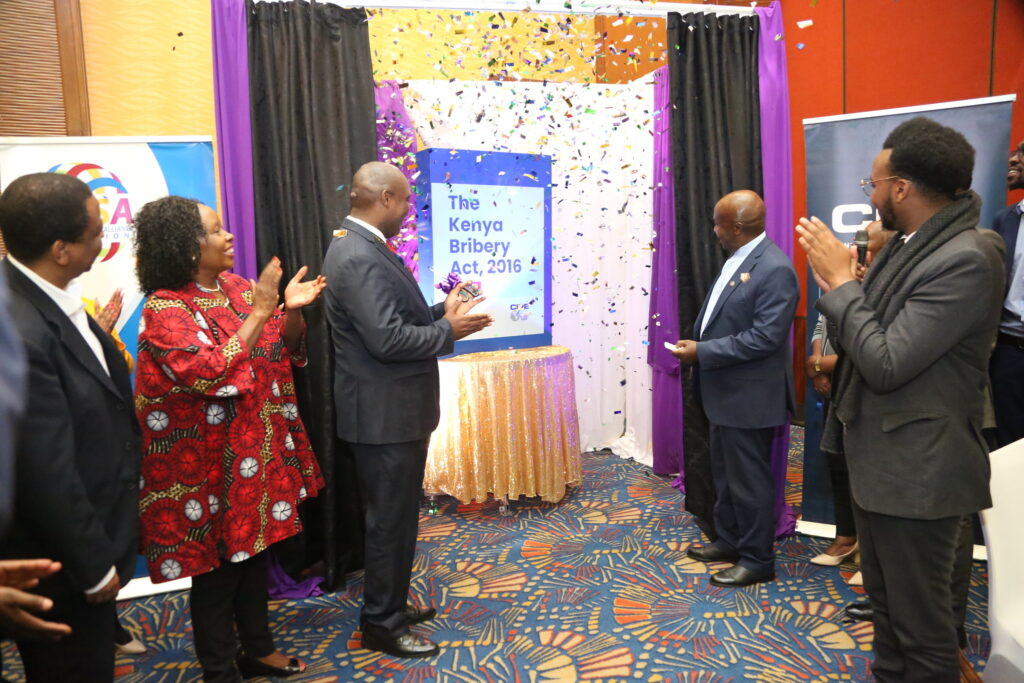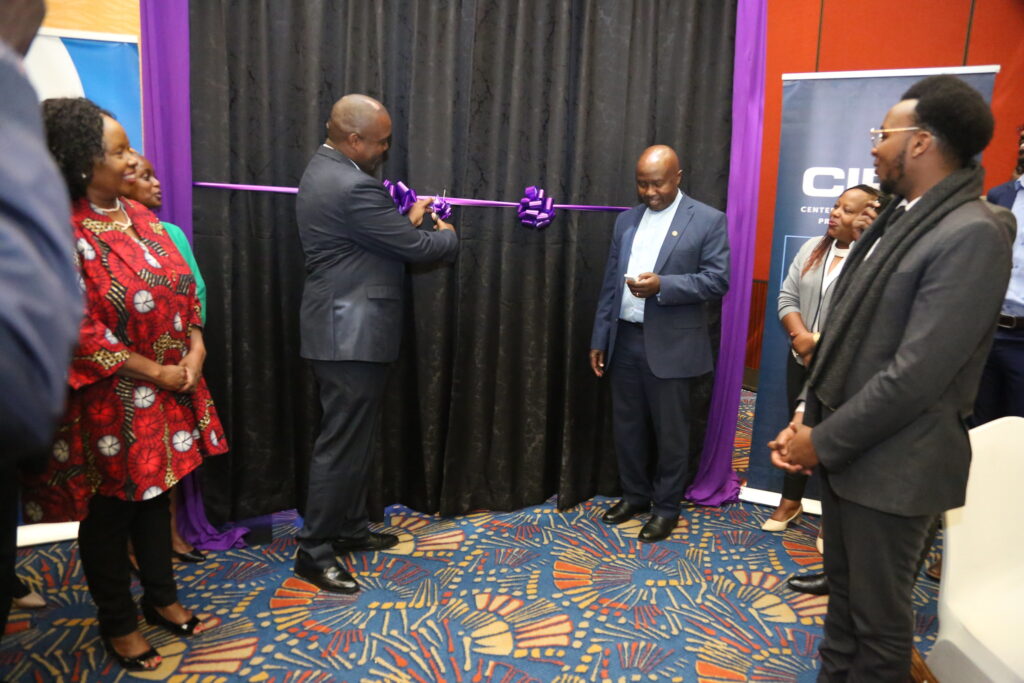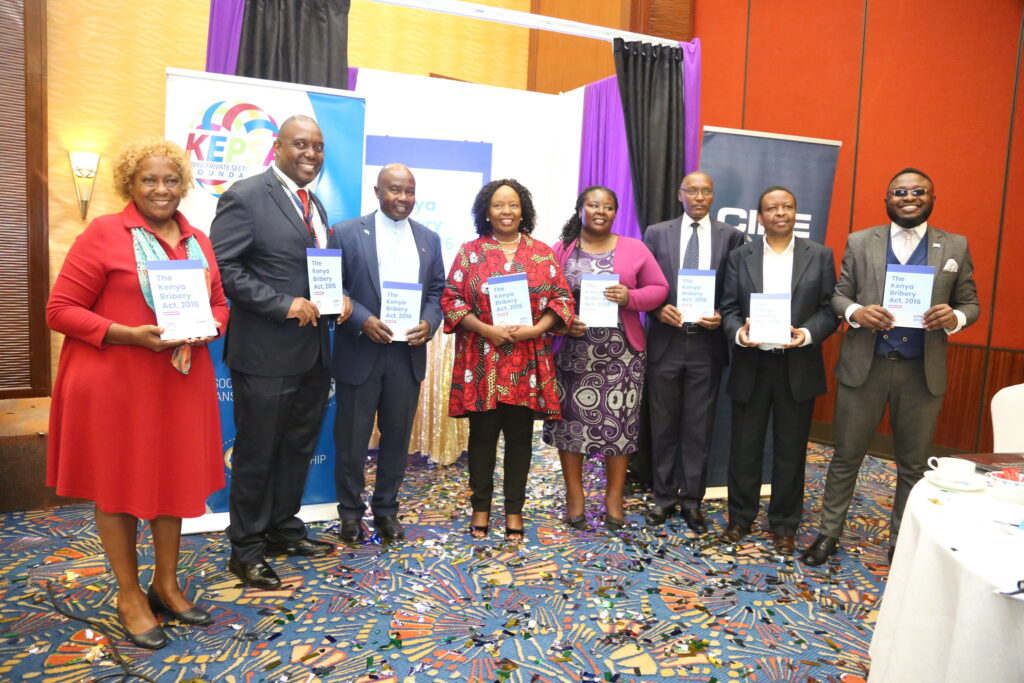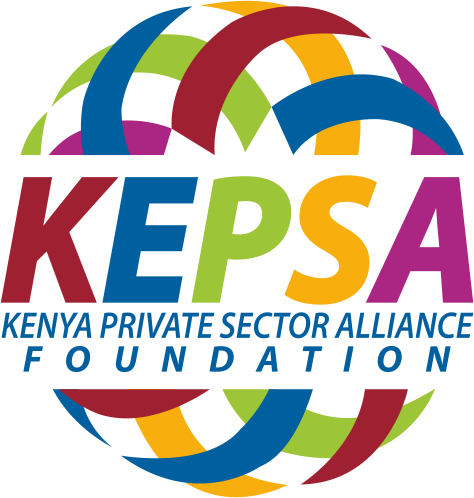Advocating for the implementation of the Bribery Act 2016 within the private sector

KEPSA Foundation takes cognizance that corruption and poor work ethics are the main obstacles to development. These obstacles hinder economic and social progress, and reduce transparency and the effectiveness of reforms. Corruption is a vice that continues to impede social and economic development across the global south. It is therefore vital to the development of these countries, to strengthen the institutions that hold a government and its citizens accountable. This is a critical component of the principles of governance, thus the need to engage in diverse and inclusive partnership models that provide a unified and well-coordinated multi-sectoral approach against corruption. This can be achieved through ensuring that policies and guidelines that promote accountability of all stakeholders in the fight against corruption are established and implemented.
As part of the Kenya Government’s broader efforts to consolidate democratic and economic stability, the legislature passed the Bribery Act in 2016. The Act is a progressive anti-bribery law for the private sector that mandates that companies doing business in Kenya must implement measures for mitigating corruption. The law directs the Ethics and Anti-Corruption Commission (EACC) of Kenya to assist companies in implementing such measures and publish guidelines for companies on appropriate compliance procedures.
Between the years 2018 and 2019, Kenya Private Sector Alliance (KEPSA) collaborated with the Center for International Private Enterprise (CIPE) to conduct a survey, and map the risks and sources of corruption for businesses in Kenya. The Corruption Risk Mapping (CRM) provided recommendations on corruption prevention for Small and Medium Enterprises (SMEs) and large businesses, as well as recommendations to the EACC on developing regulations and procedural guidelines for implementing the Bribery Act. In 2019, CIPE began collaborating with public policy and governance expert Charles Otieno, who led the development of the CRM, to provide technical support and input to EACC to refine draft regulations and guidelines for the Bribery Act. CIPE then worked with KEPSA Foundation to facilitate private sector feedback on the regulations and guidelines.
The Bribery Regulations and Guidelines were first enacted on October 22 and December 10, respectively. These statutory instruments (Bribery Guidelines and Regulations, 2021) were revoked by the Office of the Attorney General and new ones published on May 27 and June 3, 2022, respectively. The 2022 Bribery Regulations and Guidelines are now fully enacted and enforced.
KEPSA Foundation, in partnership with CIPE, initiated Phase I of the Bribery Act Project in January 2021, with an aim to mobilize the private sector as champions for ethics and integrity. This phase focused on sensitizing and raising awareness within the private sector, along with developing a quick guide for the Bribery Act, 2016, Bribery Act Regulations, 2022, and Bribery Act Guidelines, 2022. The Bribery Act 2016 is therefore a crucial legislative measure aimed at combating corruption and fostering ethical business practices in Kenya, and whose effective implementation necessitates active involvement from the private sector.
The quick guide summarizes the offences, obligations, penalties, and consequences, as well as the prevention of bribery, and protections for whistle-blowers and witnesses outlined in the Bribery Act 2016. Additionally, to foster a culture of integrity and accountability and enhance compliance within public and private entities in Kenya, the quick guide offers essential steps for reviewing anti-corruption and bribery prevention procedures and policies.
Phase II focuses on intensifying efforts in advocating for the implementation of the Bribery Act 2016 within the private sector. The Foundation will leverage the convening power of KEPSA by mobilizing private sector members as champions of its implementation, while engaging other stakeholders such as Ethics and Anti-Corruption Commission (EACC), the Office of the Attorney General (OAG) and other law enforcement agencies in roundtables aimed at advancing this initiative.




Project’s Contact
- 7th Floor, South Tower, Two Rivers, Limuru Rd, Nairobi. P.O. Box 3556-00100 Nairobi, Kenya
-
+254 202730371
+254 720 340949
735 999979 - kepsa-foundation@kepsa.or.ke
Project Documents
Follow Project documetation


